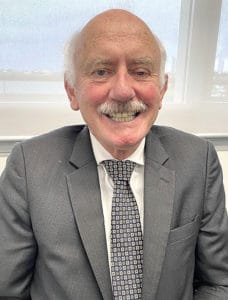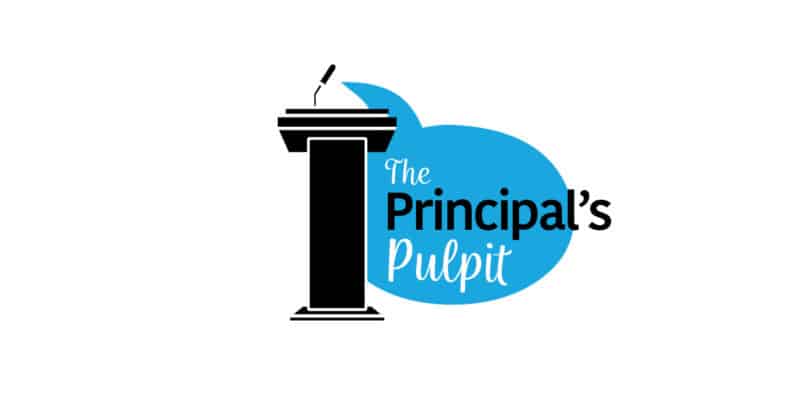January 6, 2021 was the day the US capitol building was stormed . . . the start of the end of western democracy?

Kieran Fouhy
Twenty-seven years earlier, on January 6, 1994, my family were at Mass in a tiny room in Kathmandu, Nepal with a Jesuit priest (dressed in saffron Buddhist robes) and a small group of western worshippers.
An East vs West event?
It was the feast of the Epiphany, where the Magi came from the East bearing gifts . . . Gold (earth), Incense (deity) and Myrrh (death).
Strangely, this Mass brought back childhood memories for me of aspiring to be a Columban missionary and being sent to convert China!
But I remember the scriptural phrase about the magi who were commanded in a dream — “Go back home, but in a different way.“
Not to go around. Not to go forward. But to go back.
The magi were told the universal message of change. Reclaim the past, in order to progress to the future. But do so in a different way.
That is the challenge for our New Zealand schools. The need to prepare for a future without discarding our Christian/Judaic past.
Schools — traditionally conservative institutions — are often reluctant to change because they offer a stability to their students that is often not present in their families. But in the last few decades, schools have been under the wand of what I call educational day-traders. Short sellers. Short term change agents.
Change agents who have short term ideas. They want to remove a sense of the past. They incentivise achievement ahead of long-term character building.
This phenomenon is aptly captured and researched in a recent education report titled “The Education Delusion”.
The report summary would be: There are ideas which are reasonable, but simply un-researched and half-baked with regard to educational change.
Millions of dollars have been thrown at their implementation, and then press statements have been released about being the best in the world. New Zealand is living in a delusion.
Too dramatic? Some examples:
• Witness the millions spent on the maths numeracy project with now lowered international rankings. 2015 (23rd), 2019 (27th).
• Witness the high stakes NCEA assessment — largely internal — being manipulated to give an illusion of progress. No other western country has adopted the NCEA system.
• Witness the growth of modern learning classrooms which group 90 students in a room and, as such, undermine the personal influence of the teacher. Boys are especially disadvantaged in such rooms.
• Witness the systematic rubbing out of the Christian/Judaic tradition from schools and classrooms in small and large ways. (For example, the exclusion of Catholic integrated schools from the recent Government maintenance money.)
The challenges (and opportunities) for our New Zealand Catholic schools are to reclaim our Tradition in order to have a future which is grounded and sustained. There is no future in joining the lemmings headed to the cliff!
I suggest a reclaiming of our Christian/Judaic past in five ways.
1. Reclaim in our assemblies, in classrooms, our students’ human need for deeper meaning, for prayer, for mystery. I think the Catholic Church used to have a mortgage on the word “Mystery”, which filled the gaps of explanation! (“can’t understand because it is a mystery” comment) Students really do need to understand that “Help” is the perfect prayer.
2. Reclaim the intellectual tradition of schools being monasteries of learning. Not credit collection agencies. But places where text and context slug it out. Places where discipline leads to discernment. Places where the structures of learning and the syllabi of learning are the backbone. Places where thought and theology are normalised.
3. Reclaim the teacher as being an educator. Not the facilitator of mutual ignorance, but the person of influence who owns his/her class. How many founders of religious orders said of their members — “you must love your students before you teach your students”.
4. Reclaim the view that our schools are to serve (and be served by) the village. We need to find ways that parents — as first educators — can be “enrolled” in the school without taking over as entitled stakeholders. Students need to see service in, and to, their community as a normalised state of mind. Teachers would serve their classes by being given freedom to teach.
5. Reclaim the notion that schools are places of character formation. Respect for others with manners, in dress, in language, in civil behaviour, in ethnic and economic differences, etc. — are as important as respect for scholarship and achievement. Turning up daily is a reflection of our Christian sense of presence.
I often wonder if the three magi had come, not from the eastern capitals of Iran, but from the western capitals of Northern and Southern Hemispheres — what “gifts” would they bring?
Would they bring their national treasures of debt (not gold), secularism (not incense), individualism (not myrrh)?
Go back home in a different way.
Kieran F. Fouhy is headmaster of St Paul’s College, Ponsonby, and has taught in Catholic boys’ colleges for 50 years.

Don’t attack teacher unions in the staff room. Freedom of association is part of our faith.